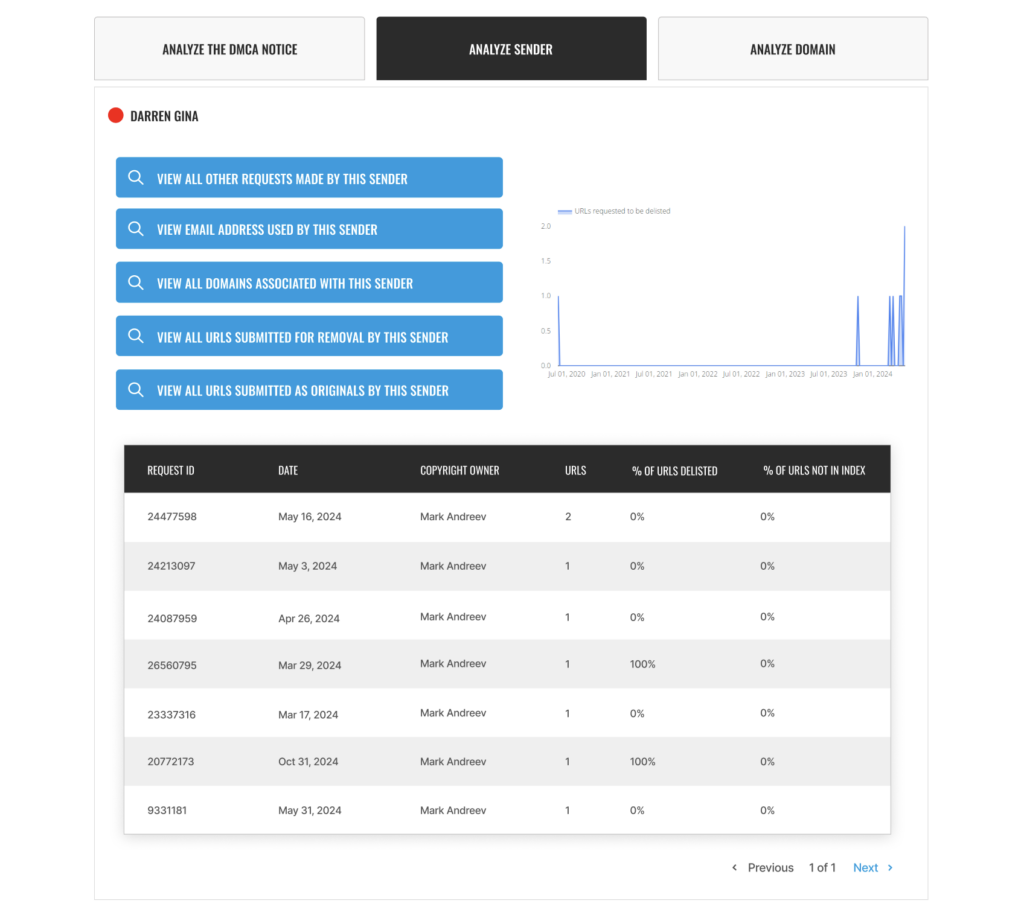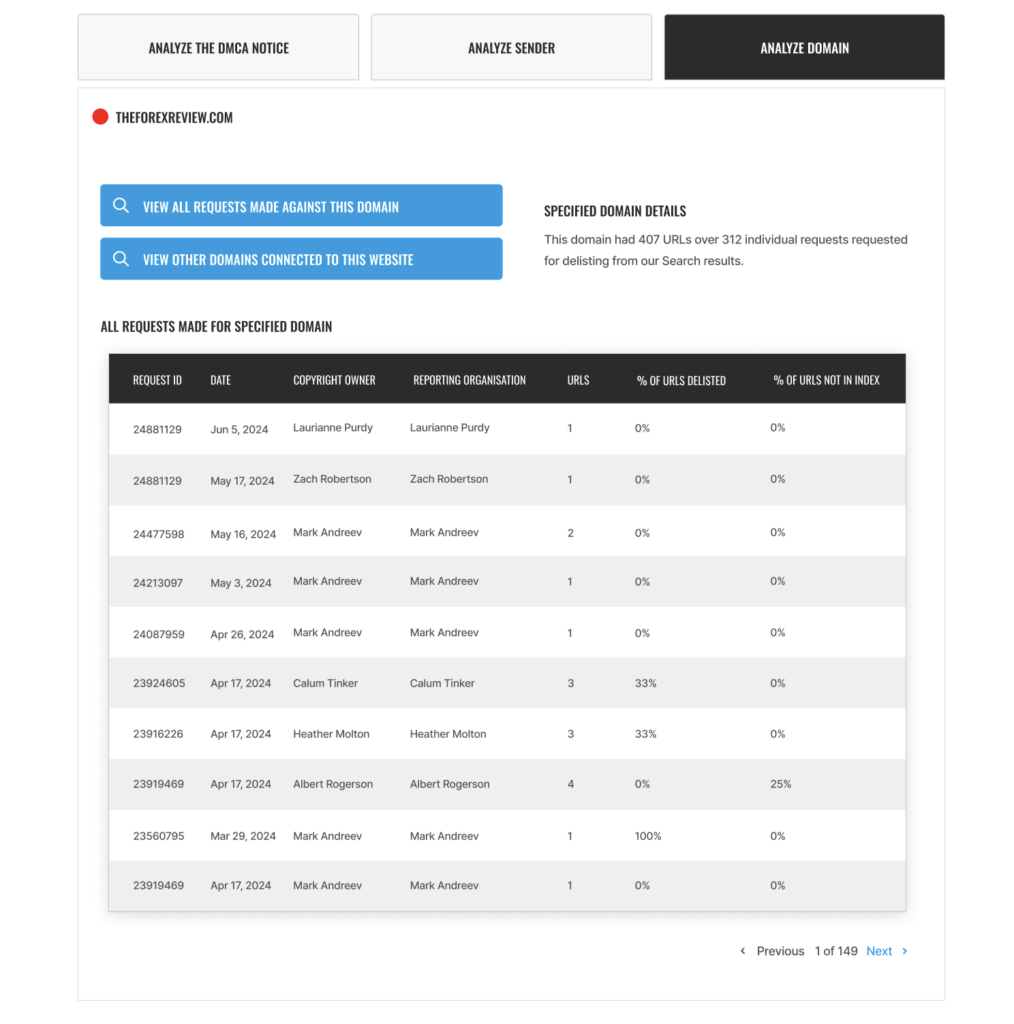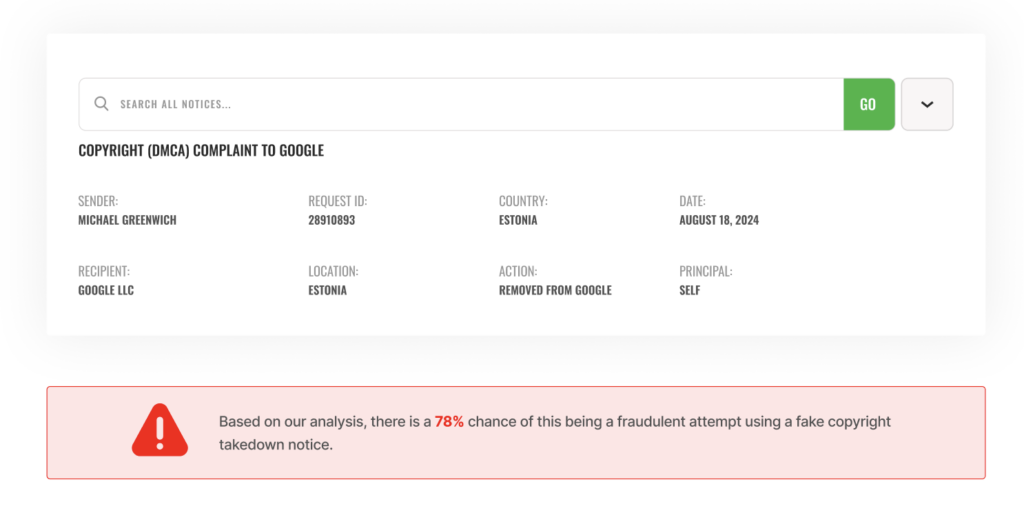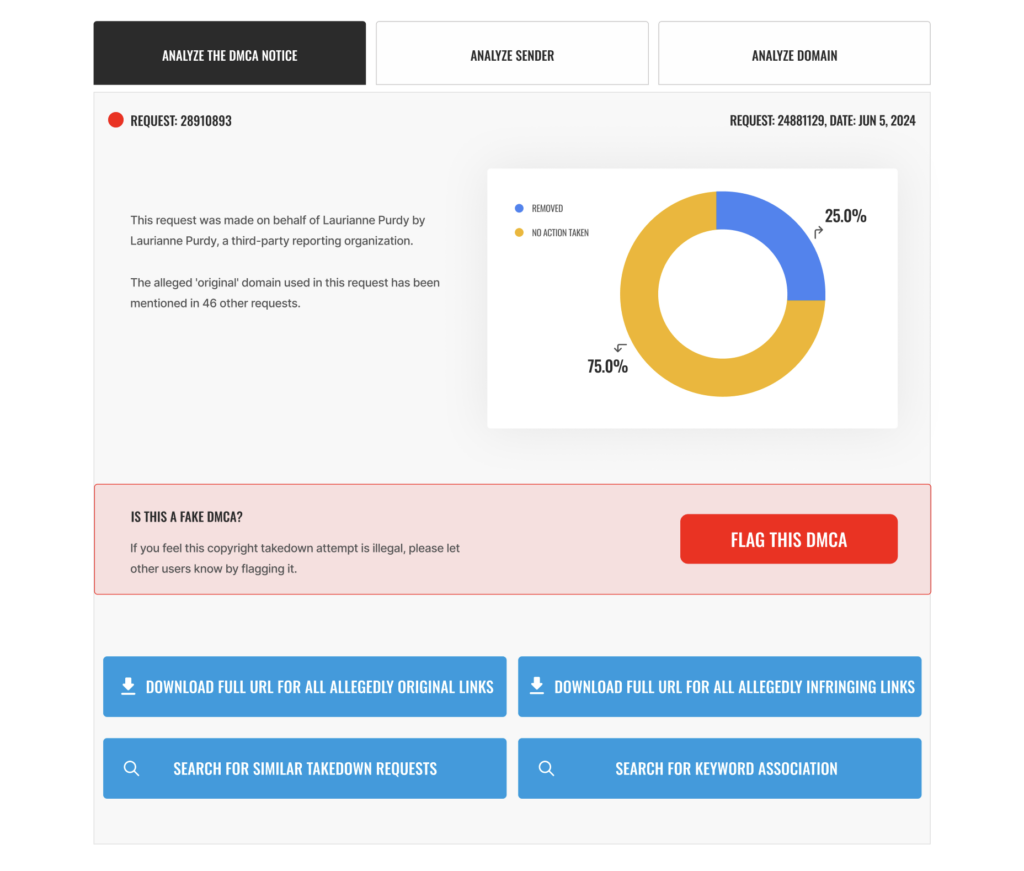What Happened?
IFX Capital has been caught in a web of controversy, attempting to obscure a shady past and censor damaging news about its operations. According to a detailed report by BrokerChooser, IFX Capital has been linked to numerous allegations of misconduct, including misleading clients, imposing hidden fees, and obstructing withdrawals. Customers have shared their grievances, ranging from unexpected losses due to opaque terms and high-risk strategies to the unresponsiveness of customer support when issues arise.

The report also highlights IFX Capital’s attempts to suppress negative reviews and unfavorable information. By employing aggressive reputation management tactics and working to remove critical content, the firm aims to curate an artificially positive image, masking the widespread dissatisfaction among its clients. These attempts to silence genuine concerns raise serious questions about transparency and integrity, casting doubt on whether IFX Capital can be trusted with investors’ hard-earned money.

Analyzing the Fake Copyright Notice(s)
Our team collects and analyses fraudulent copyright takedown requests, legal complaints, and other efforts to remove critical information from the internet. Through our investigative reporting, we examine the prevalence and operation of an organized censorship industry, predominantly funded by criminal entities, oligarchs, and disreputable businesses or individuals. Our findings allow internet users to gain insight into these censorship schemes’ sources, methods, and underlying objectives.
List of Fake Copyright Notices for IFX Capital
| Number of Fake DMCA Notice(s) | 1 |
| Lumen Database Notice(s) | https://lumendatabase.org/notices/44097781 |
| Sender(s) | SynergyNet Solutions LIMITED |
| Date(s) | Aug 25, 2024 |
| Fake Link(s) Used by Scammers | https://tradersunion.com/scam-or-safe/ifx-capital-review/ |
| Original Link(s) Targeted | https://brokerchooser.com/safety/ifx-capital-broker-safe-or-scam |
Evidence and Screenshots

How do we investigate fake DMCA notices?
To accomplish this, we utilize the OSINT Tool provided by FakeDMCA.com and the Lumen API for Researchers, courtesy of the Lumen Database.
FakeDMCA.com is the work of an independent team of research students and cybersecurity professionals, developed under Project UnCensor. Their OSINT Tool, designed to uncover and analyze takedown notices, represents a significant step forward in combating these abusive practices. It has become a valuable resource, increasingly relied upon by journalists and law enforcement agencies across the United States.
Lumen, on the other hand, is an independent research initiative dedicated to studying takedown notices and other legal demands related to online content removal. The project, which operates under the Berkman Klein Center for Internet & Society at Harvard University, plays a crucial role in tracking and understanding the broader implications of such requests.
What was IFX Capital trying to hide?
IFX Capital is a brokerage firm that offers various financial services, including trading in forex, commodities, and other investment products. However, the company has been mired in controversy due to numerous complaints, allegations of misconduct, and an overall lack of transparency. The report from BrokerChooser reveals several red flags that IFX Capital appears to be actively attempting to hide from the public.
1. Adverse News and Allegations
- Misleading Clients: IFX Capital has been accused of providing misleading information to clients regarding the nature of their investments. According to BrokerChooser, customers were often led to believe that they were participating in secure and profitable investments, only to face unexpected risks and substantial financial losses.
- High-Risk Investment Strategies: There are reports that IFX Capital pushes high-risk trading strategies without adequately informing clients about the associated dangers. This lack of disclosure has led to many clients experiencing unexpected losses, raising questions about the ethical practices of the firm.
2. Customer Complaints and Bad Reviews
- Hidden Fees and Charges: One of the most common complaints against IFX Capital involves the imposition of hidden fees that were not disclosed during the initial agreement. Clients reported discovering unexpected charges on their accounts, which significantly affected their profitability and left them feeling deceived.
- Withdrawal Issues: Many clients have faced significant difficulties when attempting to withdraw their funds. Complaints indicate that IFX Capital imposes various obstacles, such as excessive paperwork, lengthy delays, or outright refusals, making it challenging for investors to access their money.
- Unresponsive Customer Support: Another major issue highlighted by clients is the unresponsiveness of IFX Capital’s customer support team. Many customers reported being ignored or receiving vague responses when they attempted to resolve issues, leading to further frustration and mistrust.
3. Attempts to Hide and Censor Negative Information
- Suppression of Negative Reviews: IFX Capital has reportedly made efforts to remove or bury negative reviews and unfavorable information. This includes attempting to get critical content taken down from online platforms, thereby preventing potential clients from seeing the real experiences of past investors.
- Reputation Management Tactics: The firm appears to be using aggressive reputation management tactics to counteract negative feedback. This includes promoting positive reviews that may not be genuine and overshadowing critical content to create an illusion of credibility and reliability.
4. Lack of Transparency and Regulatory Concerns
- Opaque Business Practices: BrokerChooser points out that IFX Capital has been less than forthcoming about its business practices. Key information, such as the terms of service, fees, and risk disclosures, is often obscured or buried in fine print, making it difficult for clients to fully understand the nature of their investments.
- Unclear Regulatory Status: IFX Capital’s regulatory status is also called into question. The lack of transparent information about whether the company is properly licensed raises concerns about its compliance with financial regulations, suggesting that it may not be authorized to offer the services it advertises.
5. Warnings to Potential Clients
- High-Risk Engagement: Given the numerous complaints and negative feedback, potential clients are advised to exercise caution when dealing with IFX Capital. The firm’s track record of misleading information, hidden fees, withdrawal issues, and attempts to hide negative reviews indicates a high-risk engagement that could lead to financial loss.
- Thorough Research Needed: Investors are urged to conduct thorough research and verify the company’s regulatory credentials before considering any financial engagement. The red flags highlighted by former clients should be carefully considered, as they indicate a pattern of questionable behavior and unethical practices.
IFX Capital has been attempting to hide a history of unethical practices, including misleading clients, pushing high-risk investments without proper disclosure, imposing hidden fees, and making it difficult for investors to withdraw their funds. The company’s efforts to suppress negative information and curate a positive image indicate a deliberate attempt to obscure the truth about its operations. These actions raise serious concerns about transparency and integrity, suggesting that potential investors should approach IFX Capital with extreme caution.
Only IFX Capital benefits from this crime.

Since the fake copyright takedown notices were designed to remove negative content for IFX Capital from Google, we assume IFX Capital or someone associated with IFX Capital is behind this scam. It is often a fly-by-night Online Reputation agency working on behalf of IFX Capital. In this case, IFX Capital, at best, will be an “accomplice” or an “accessory” to the crime. The specific laws may vary depending on the jurisdiction. Still, the legal principle generally holds that if you actively participate in planning, encouraging, or facilitating a crime, you can be charged with it, even if you did not personally commit it.
How do we counteract this malpractice?
Once we ascertain the involvement of IFX Capital (or actors working on behalf of IFX Capital), we will inform IFX Capital of our findings via Electronic Mail.
Our preliminary assessment suggests that IFX Capital may have engaged a third-party reputation management agency or expert, which, either independently or under direct authorization from IFX Capital, initiated efforts to remove adverse online content, including potentially fraudulent DMCA takedown requests. We will extend an opportunity to IFX Capital to provide details regarding their communications with the agency or expert, as well as the identification of the individual(s) responsible for executing these false DMCA notices.
Failure to respond in a timely manner will necessitate a reassessment of our initial assumptions. In such an event, we will be compelled to take appropriate legal action to rectify the unlawful conduct and take the following steps –
- Inform Google about the fraud committed against them.
- Inform the victims of the fake DMCA about their websites.
- Inform relevant law enforcement agencies
- File counter-notices on Google to reinstate the ‘removed’ content
- Publish copies of the ‘removed’ content on our network of 50+ websites
By investigating the fake DMCA takedown attempts, we hope to shed light on the reputation management industry, revealing how IFX Capital and companies like it may use spurious copyright claims and fake legal notices to remove and obscure articles linking them to allegations of fraud, tax avoidance, corruption, and drug trafficking…
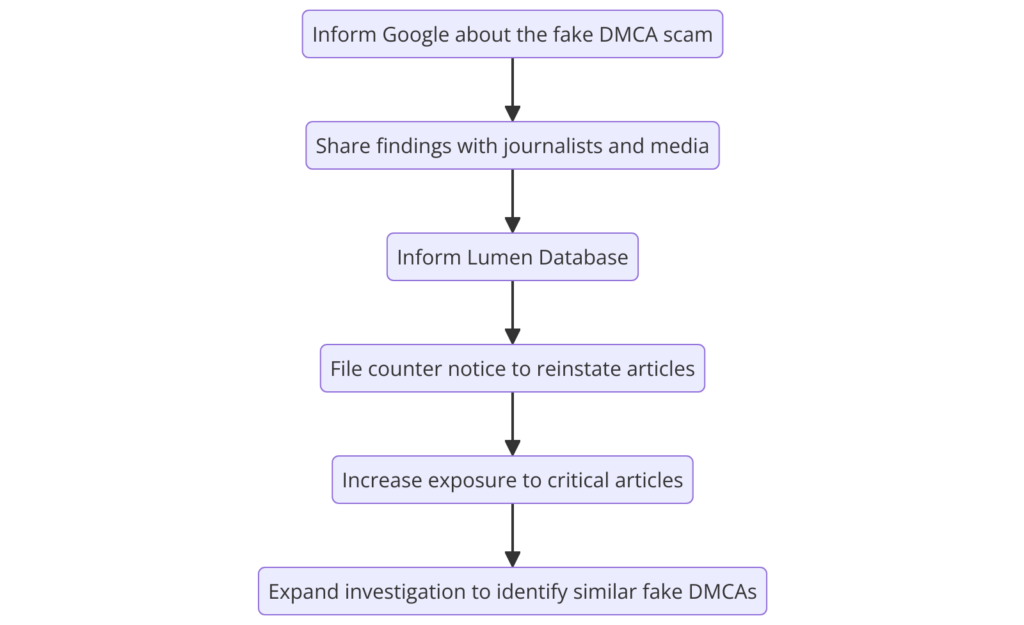
Since IFX Capital made such efforts to hide something online, it seems fit to ensure that this article and our original review of IFX Capital, including but not limited to user contributions, remain a permanent record for anyone interested in IFX Capital.
A case perfect for the Streisand effect…
Potential Consequences for IFX Capital
Under Florida Statute 831.01, the crime of Forgery is committed when a person falsifies, alters, counterfeits, or forges a document that carries “legal efficacy” with the intent to injure or defraud another person or entity.
Forging a document is considered a white-collar crime. It involves altering, changing, or modifying a document to deceive another person. It can also include passing along copies of documents that are known to be false. In many states in the US, falsifying a document is a crime punishable as a felony.

Additionally, under most laws, “fraud on the court” is where “a party has sentiently set in motion some unconscionable scheme calculated to interfere with the judicial system’s ability impartially to adjudicate a matter by improperly influencing the trier of fact or unfairly hampering the presentation of the opposing party’s claim or defense.” Cox v. Burke, 706 So. 2d 43, 46 (Fla. 5th DCA 1998) (quoting Aoude v. Mobil Oil Corp., 892 F.2d 1115, 1118 (1st Cir. 1989)).
Is IFX Capital Committing a Cyber Crime?
Yes, it seems so. IFX Capital used multiple approaches to remove unwanted material from review sites and Google’s search results. Thanks to protections allowing freedom of speech in the United States, there are very few legal ways to do this. IFX Capital could not eliminate negative reviews or search results that linked to them without a valid claim of defamation, copyright infringement, or some other clear breach of the law.
Faced with these limitations, some companies like IFX Capital have gone to extreme lengths to fraudulently claim copyright ownership over a negative review in the hopes of taking it down.
Fake DMCA notices have targeted articles highlighting the criminal activity of prominent people to hide their illegal behavior. These people, which include US, Russian, and Khazakstani politicians as well as members from elite circles including the mafia and those with massive financial power, are all connected – and alleged corruption ranging from child abuse to sexual harassment is exposed when exploring evidence found at these URLs. It appears there’s a disturbing level of influence being exerted here that needs further investigation before justice can be served. IFX Capital is certainly keeping interesting company here….

The DMCA takedown process requires that copyright owners submit a takedown notice to an ISP identifying the allegedly infringing content and declaring, under penalty of perjury, that they have a good faith belief that the content is infringing. The ISP must then promptly remove or disable access to the content. The alleged infringer can then submit a counter-notice, and if the copyright owner does not take legal action within 10 to 14 days, the ISP can restore the content.
Since these platforms are predominantly based in the U.S., the complaints are typically made under the Digital Millennium Copyright Act (DMCA), which requires online service providers and platforms to react immediately to reports or violations. Big Tech companies rarely have systems in place to assess the merit of each report. Instead, all bad actors need to do is clone a story, backdate it, and then demand the real thing be taken down.
Reputation Agency’s Modus Operandi
The fake DMCA notices we found always use the “back-dated article” technique. With this technique, the wrongful notice sender (or copier) creates a copy of a “true original” article and back-dates it, creating a “fake original” article (a copy of the true original) that, at first glance, appears to have been published before the true original.

Then, based on the claim that this backdated article is the “original,” the scammers send a DMCA to the relevant online service providers (e.g. Google), alleging that the ‘true’ original is the copied or “infringing” article and that the copied article is the “original,” requesting the takedown of the ‘true’ original article. After sending the DMCA request, the person who sent the wrong notice takes down the fake original URL, likely to make sure that the article doesn’t stay online in any way. If the takedown notice is successful, the disappearance from the internet of information is most likely to be legitimate speech.





